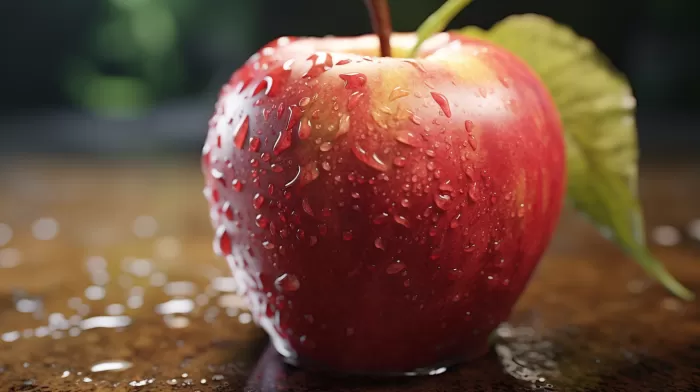Chemical is a word that can instill fear in many people, but some chemicals, including phenolics, flavonoids, flavonols, and carotenoids, are naturally created by plants to help protect them and make them strong. These beneficial chemicals can also be transferred to humans when consumed, promoting health and protecting against diseases like cancer.
Apples and Breast Cancer
Phenolics, flavonoids, and other chemicals found naturally in apples and other fruits and vegetables with peels can help fight breast cancer and kill other tumor cells. However, to gain these benefits, you must eat the peels.
In studies of apple peels, scientists discovered that a variety of these compounds have “potent antioxidant and anti-proliferative activities” against tumors, according to Rui Hai Liu, a researcher with Cornell’s Institute for Comparative and Environmental Toxicology.
In lab tests using these apple chemicals, Liu observed that the treated animals had fewer tumors, and these tumors were smaller, less malignant, and grew more slowly compared to the tumors in the untreated animals.
This may be why, in the Nurses Health Study and the Health Professionals Follow-up Study, regular consumption of fruit and vegetables corresponded with a 21% reduction in lung cancer risk in women. Apples, in particular, stood out among all fruit and a recent Finnish study reveals similar results.
Choosing the Right Apples
You can find a wide variety of apples at your local grocery store, but it’s best to wash them thoroughly to make sure there is no pesticide residue on the peels, which is the part you want to eat. Better yet, stick to organic apples.
Many people worry about eating apple seeds, which contain a substance called amygdalin. When it comes into contact with enzymes in the digestive tract, amygdalin releases cyanide, a potentially lethal substance. However, the amount of cyanide in apple seeds is so low that accidental ingestion of a few seeds is unlikely to cause harm. Crushing or chewing large numbers of apple seeds would pose a risk, but swallowing them whole allows them to pass through the body undigested.
Nutritional Supplements
If you’re concerned about eating apples, you can still get some of the benefits from the use of nutritional supplements such as quercetin. In his book, Surviving Cancer, Dr. Michael Cutler includes quercetin in his list of 10 cancer-fighting nutrients.
Quercetin is an antioxidant with anti-inflammatory and antihistamine properties. It’s found in many foods, including apples, black tea, capers, grapes, onions, red wine, and tomatoes. Studies have linked quercetin to improved heart health, reduced risk of certain cancers, and lower blood pressure.
Additional Anticancer Foods
In addition to apples, other fruits and vegetables also contain chemicals that can help protect against cancer:
- Cruciferous vegetables like broccoli, cauliflower, cabbage, and Brussels sprouts are rich in sulfur-containing compounds called glucosinolates, which break down into isothiocyanates and indoles with anticancer properties.
- Berries, such as blueberries, blackberries, strawberries, and raspberries, contain antioxidants called anthocyanins, which have been shown to inhibit the growth of cancer cells and reduce inflammation.
- Tomatoes contain lycopene, a powerful antioxidant that has been linked to a reduced risk of prostate cancer.
- Green tea is rich in antioxidants called catechins, which have been found to inhibit the growth of cancer cells and reduce tumor size.
Keep in mind that while eating more fruits and vegetables can help reduce your risk of cancer, it’s essential to maintain a balanced diet and lead a healthy lifestyle, including regular exercise, sufficient sleep, and stress management techniques.
In Conclusion
Natural chemicals found in apple peels and other fruits and vegetables can provide numerous health benefits, including protection against cancer. To maximize these benefits, focus on a diverse diet rich in fruits, vegetables, and other plant-based foods, washed and prepared properly. Nutritional supplements, such as quercetin, can also provide additional support. Remember, a healthy lifestyle goes beyond what you eat, so incorporate exercise, sleep, and stress management practices for the best protection against disease.



